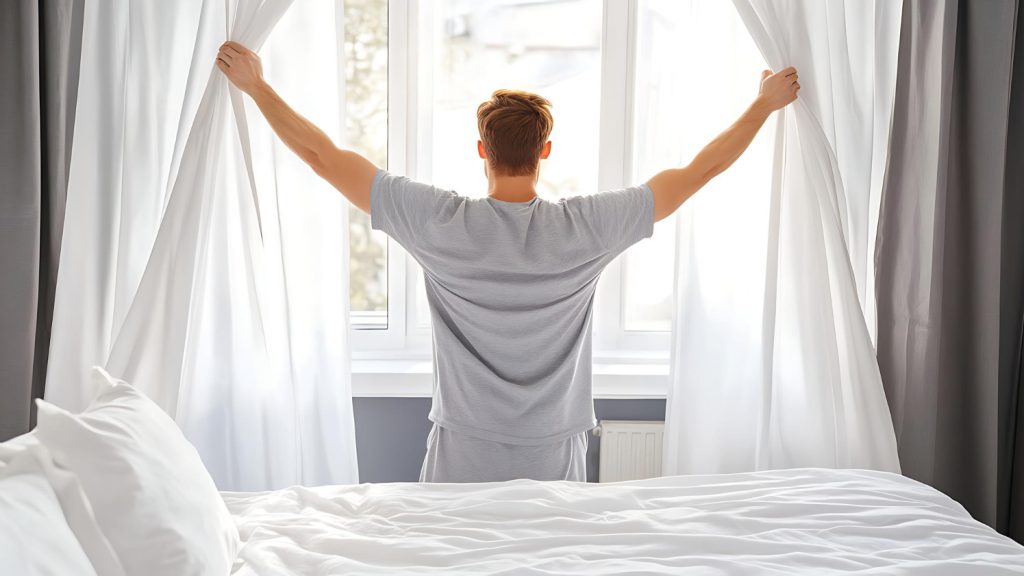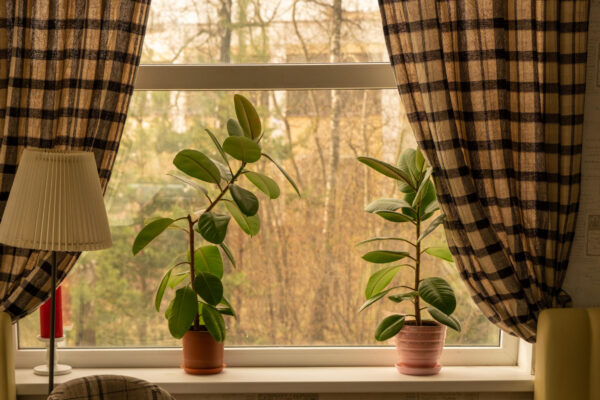How Often Should You Clean Curtains?
Table of Contents
In the hustle and bustle of everyday life, cleaning curtains can seem like a chore. Yet these silent appliances are on the front lines of dealing with everyday dust, pollen, and invisible allergens. As a result, not only your curtains but also the air in your home can become heavy and unhealthy if not cleaned regularly.
Many people may not realise how much these curtains, which are struggling with dust and sand, play a big role in determining the quality of our breath. For this reason, it is important to take care of them not only to maintain their beauty but also to protect their health. The question is therefore very relevant: how often should curtains be washed to keep the house clean and maintain our health?

What is the importance of washing curtains?
We walk past our curtains every day, pulling them to block out light, and sometimes opening them to let in fresh air. But many of us don’t realise how these silent companions affect the atmosphere in our homes.
Respiratory protection
Dust, mites, and allergens that accumulate on curtains slowly mix with the air and enter our lungs. This can pose a major risk to those with asthma or allergies.
Protects the house from odour buildup
Curtains absorb everything from cooking fumes, dust, and outside pollution. If they are not cleaned regularly, the odours that accumulate inside them eventually spread throughout the room.
Protects the life of the fabric
Accumulated dirt not only stains but also weakens the fibres. As a result, expensive curtains not only lose their beauty, but can also tear quickly.
Improves the beauty and environment of the home
Clean curtains are not only pleasing to the eye, but they also make a room feel fresh, bright, and welcoming. They have a positive impact on both your mood and even your guests’ first impressions.

How often should curtains be washed?
Curtains are not only a beauty of the house, but also closely related to your health and cleanliness. These curtains work silently against dust, smoke, pet hair or allergens. So if they are not cleaned regularly, invisible dangers can accumulate in every corner of the house.
Wash once every 6 months.
Under normal circumstances, cleaning experts recommend washing your curtains at least every six months. This also maintains the colour of the curtains and reduces the risk of dust accumulation, odours, or allergies.
Reduce washing time if these three conditions apply:
- If you live in an area with high pollution
- If there are pets in the house
- If anyone in the family suffers from allergies
In this situation, it is safe and hygienic to wash the curtains once every 3 months.
Kitchen and bathroom curtains
Curtains in these two areas get dirty quickly from oil, grease, or moisture, so they should be cleaned more frequently than in other rooms, once a month if necessary.
Factors affecting washing frequency
Suppose your home is next to a busy road or in an area with dusty air. In that case, your curtains will accumulate invisible pollution every day. In such an environment, washing them once or twice a year is not enough. If you don’t clean your curtains frequently, the air in your home can become heavy and unhealthy.
Pets compound the problem. Their hair, paw dust, or small particles scattered during play can accumulate on the curtains, gradually creating an allergy risk. Similarly, if smoking occurs indoors, the curtains retain the smell of smoke and black stains, which are not only unsightly but also harmful in the long run.
That’s why experts say it’s important to consider the environment and habits of the home before deciding on a curtain washing schedule. It’s not just a question of cleaning the fabric; it also affects the air quality in the house.
Important Considerations Before Cleaning
Before cleaning the curtain, there are some things you need to be aware of; otherwise, improper cleaning can cause damage. Many people think that all curtains can be cleaned the same way, but the reality is entirely different.
Identify the type of fabric first
Silk, linen, velvet, cotton, or polyester, each fabric has its characteristics, and accordingly, requires different care.
- Soft, delicate fabrics, such as silk or linen, often require hand washing or dry cleaning.
- On the other hand, durable fabrics such as polyester can often be safely machine-washed.
Washing in the wrong way can result in fabric shrinkage, colour fading, or even ruining the entire design.
Reading labels is mandatory, not optional
There is usually a small tag inside or on the back of each curtain, which lists the correct washing method, type of detergent, temperature, and drying instructions. Reading this tag means you are acting consciously and not taking any risks.

Why washing curtains creates a healthier environment at home
Washing curtains is a habit that we often neglect, but which, if done regularly, can even change the air in the room. No matter how much light and air you let in by opening the windows, if the curtains themselves are full of dust, mould, and bacteria, then that air will not be clean either.
Especially in humid weather, tiny dust particles, mites, and even fungi accumulate on the surface of the curtain Ordinary curtains that are invisible to the eye, but enter the body with our breath. If these accumulate day after day, they can cause not only allergies, but also problems like itchy skin, breathing problems, and even insomnia.
Interestingly, once the house is cleaned correctly, we notice that sleep is a little more restful, the house smells cleaner, and the children sneeze less while playing. Simple habits like washing curtains also play a significant role in these small changes.
Health scientists say that a truly healthy environment is created where allergens and bacteria are reduced. And that starts with keeping your home’s curtains clean.
Author






